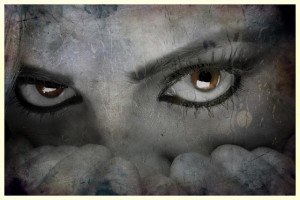- Calls to this hotline are currently being directed to Within Health, Fay or Eating Disorder Solutions
- Representatives are standing by 24/7 to help answer your questions
- All calls are confidential and HIPAA compliant
- There is no obligation or cost to call
- Eating Disorder Hope does not receive any commissions or fees dependent upon which provider you select
- Additional treatment providers are located on our directory or samhsa.gov
College Cheerleaders: Media’s Definition of Beauty

Contributor: Julie Raymond, MA, LPC, Eating Disorder Specialist, Timberline Knolls
The media’s definition of beauty is narrow and rigid. A full 98% of people do not look like models, yet that is 100% of the images we see depicted in the media. In fact, most, if not all, models/actors are photo shopped.
If aliens from outer space came down and only had the media to decipher what humans looked like they would think all women looked like Victoria’s secret models – tall, long flowing hair, and thin. However, the reality is that the average woman does not look like a Victoria’s secret model. The images we see set up unrealistic and unobtainable standards for women to look like.
Exaggerated Stereotypes for the “Ideal” Woman
Hyper-femininity or following exaggerated gender stereotypes for women, is an ideal many women are trying to achieve and encouraged to achieve through the media. Women often are trying to fit into this box of hyper-femininity (slim, hypersexual, innocent, etc.)
Unfortunately, most women do not fit into this box and are left feeling marginalized.
Cheerleading and Hyper Femininity
Cheerleading is a sport that plays out this notion of hyper femininity. Cheerleaders are supposed to be bubbly, always smiling, in shape/thin and have a stereotypical feminine appearance.
Traditionally, cheerleading has had rules in competitions for women to uphold a certain standard of beauty. For example: points deducted for not smiling or not having makeup a certain way. Cheerleading can reinforce the media’s representation of beauty by emulating the hyper-femininity look.
Rating Women on Their Appearance
 Also, this idea of rating women on their performance and beauty together connects the idea that a woman’s value at the very core is dependent on her appearance.
Also, this idea of rating women on their performance and beauty together connects the idea that a woman’s value at the very core is dependent on her appearance.
Being a critical viewer of the media is important for women in order to combat the negative affects the media can have on body/self image.
Consciously being aware of feelings and thoughts that come up when exposed to media is helpful in a person identifying how they are being impacted.
How Cheerleading Can Be a Positive Event
Ideally, cheerleading is about doing it because you love it and the way it makes you feel. Hopefully, by participating in this sport, a person is allowing themselves to be true to who they are and aligning with their values as a person.
Understanding the intention behind a person’s desires to wear makeup or dress a certain way are crucial to not creating an inauthentic identity. However one chooses to dress, ideally they are wearing clothes that make them feel good about who they are and not wearing clothes because they think they “need to” or “have to.”
About Timberline Knolls:
Located in suburban Chicago, Timberline Knolls is a leading private residential treatment center for females (ages 12 – 65+) with eating disorders, substance abuse, trauma, mood and co-occurring disorders. For more information, call 877.257.9611 today.
Community Discussion – Share your thoughts here!
What are your thoughts on media’s portrayal of women in the media? What steps can you or do you make to affect positive change in this area?
The opinions and views of our guest contributors are shared to provide a broad perspective of eating disorders. These are not necessarily the views of Eating Disorder Hope, but an effort to offer discussion of various issues by different concerned individuals.
Last Updated & Reviewed By: Jacquelyn Ekern, MS, LPC on January 16th, 2015
Published on EatingDisorderHope.com

The EatingDisorderHope.com editorial team comprises experienced writers, editors, and medical reviewers specializing in eating disorders, treatment, and mental and behavioral health.

